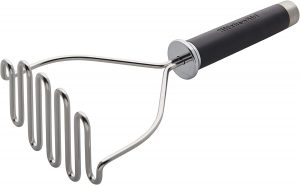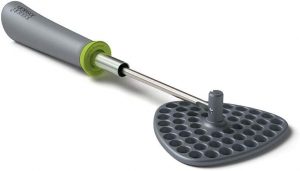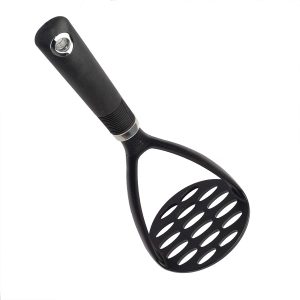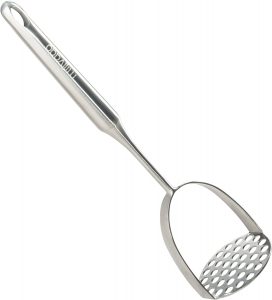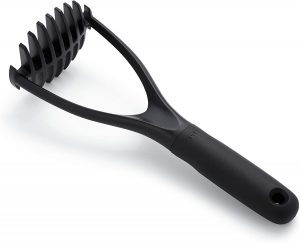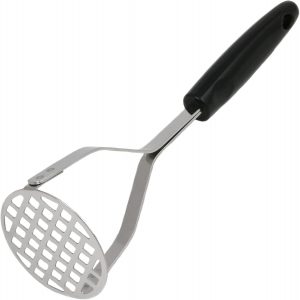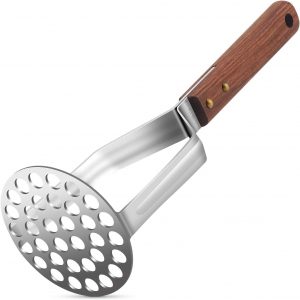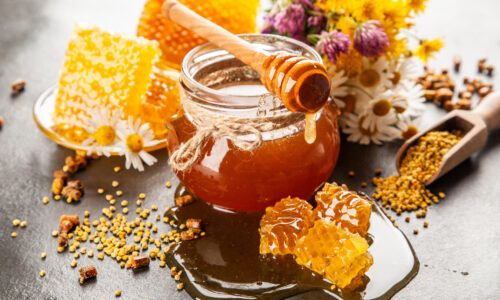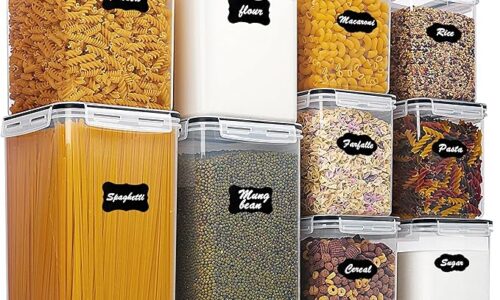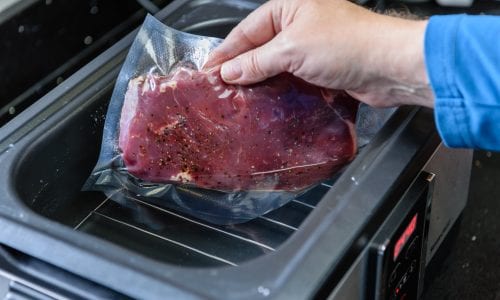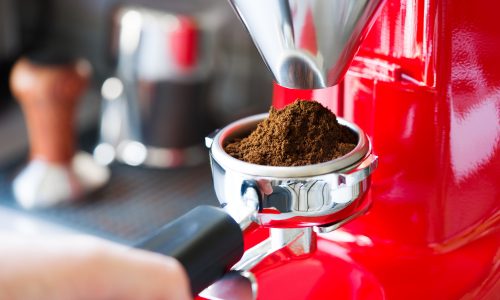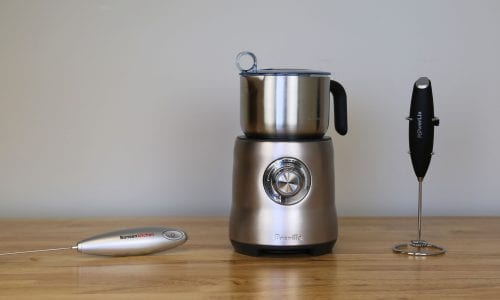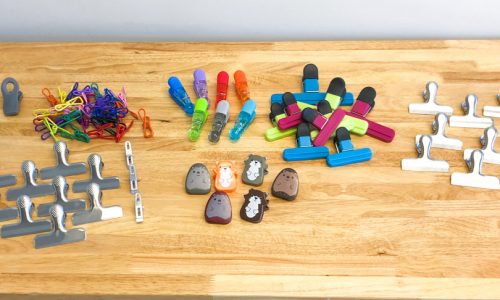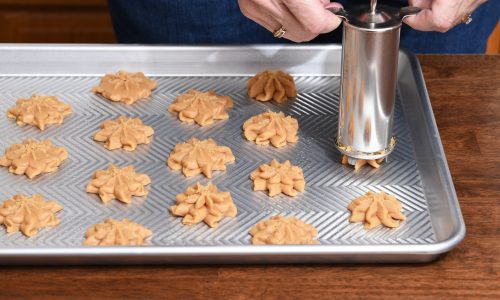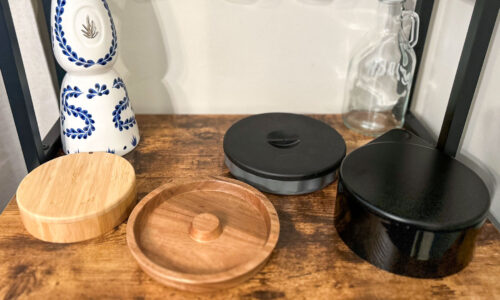The Best Potato Masher
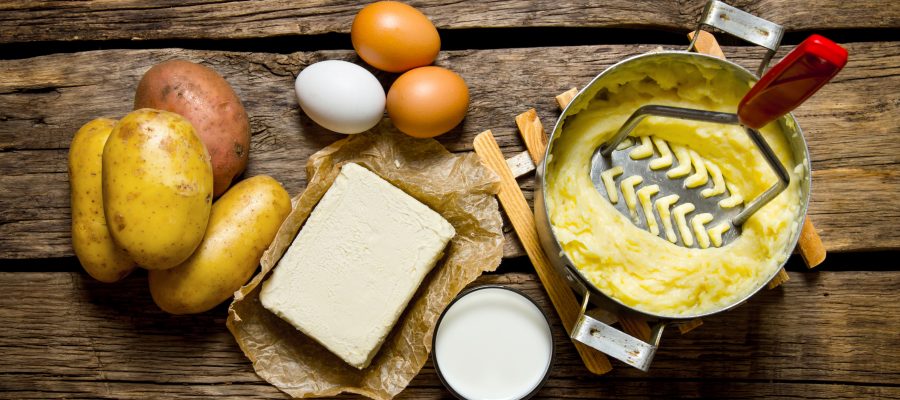
Our Review Process
Don't Waste Your Money is focused on helping you make the best purchasing decision. Our team of experts spends hundreds of hours analyzing, testing, and researching products so you don't have to. Learn more.
Our Picks For The Top Potato Mashers
- 1. Farberware Non-Stick Nylon Meat & Potato Masher
- 2. KitchenAid Stainless Steel Wire Head Potato Masher
- 3. Joseph Joseph Folding Store Flat Potato Masher
- 4. Cooking Light Heat Resistant Nylon Potato Masher
- 5. Millvado Dishwasher Safe Stainless Steel Potato Masher
- 6. Joyoldelf Non-Slip Silicone Handle Potato Masher
- 7. OXO Good Grips Dishwasher Safe Nylon Potato Masher
- 8. Chef Craft Ergonomic Plastic Handle Potato Masher
- 9. Zulay Kitchen Silicone Coated Steel Potato Masher
- 10. Tmflexe Anti-Slip Wood Handle Potato Masher
If you've got a big crowd to feed, reach for this heavy-duty masher. It's made of stainless steel with an ergonomic plastic grip that will keep things stable while you make quick work of large batches. The wide spacing makes it best for chunky-style potatoes.
For Chunky PotatoesNothing gets the job done on big mashing jobs better than this tool!
Finally, a potato masher that you can stow in a drawer! That's thanks to a folding design that lets the business end lie flat and parallel to the handle when it's not in use. Fold this plastic and stainless steel masher out, lock the bracket in place and you're ready to cook.
Folds Away FlatThe foldaway design of this efficient masher makes it easy to store.
Both the handle and grid on this tool are made of heat-resistant nylon that's BPA-free. The result is a surprisingly durable, ergonomic masher that makes smooth-textured mashed potatoes. Afterward, the large rounded holes make cleanup a breeze.
Easy to CleanGet smooth potatoes with no lumps; the slick nylon material stays clean.
Buying Guide
Pie is great. Stuffing is comforting. But apart from turkey, is there any food that’s more essential to a Thanksgiving dinner than mashed potatoes? It’s such a simple dish that the recipe is (more or less) right there in the name. Still, every family manages to put their own stamp on it — and one of the ways they do that is with a reliable potato masher.
Even though you can use it for more than just mashing potatoes, this tool is one of the most specialized kitchen utensils. It can come in a lot of different styles and shapes, but the basic function is the same: to simultaneously stir and grind down cooked potatoes, making them into that most comforting of comfort foods.
The type of masher you pick has a lot to do with the way you like your ideal potato dish, but there’s one quality you need to look for: durability. Using an old-school masher is going to be labor-intensive, even with the best design. With that in mind, stainless steel will be a good option. Ideally, you want to make sure that steel is a single piece that goes all the way up the handle — even if that handle is encased in wood, plastic or some other material that makes it easy to grip. True stainless steel has a lot of advantages when it comes to cooking. It’s not going to rust or melt, and it generally holds up fine in the dishwasher.
There are also plastics that can do the job, and they may be a bit cheaper. Make sure that they are heat-resistant and aren’t made with PBCs (polychlorinated biphenyls) or other chemicals that can mix into your food. Wood mashers can still be found on the market, and many users swear by them. Just make sure to hand-wash them, and don’t be afraid to toss them if splinters start to show up.
The business end of the masher is usually either a flat surface with holes or a series of parallel wires. The wires are going to be easier to use initially, but you’ll find it harder to get those potatoes to a creamy consistency. Then again, you may like your mashed potatoes a little chunky! If so, this is the tool for you. Flat mashers require a little more elbow grease, but there’s nothing like them if you want to get your dish creamy and thoroughly mixed.
When the mashing is all done, you’ll want something that’s easy to clean. It’s always nice to have a masher that’s dishwasher safe, but they tend to take up a lot of space on the rack. You’re better off getting one that’s easy to wipe clean in the sink, and flat plastic mashers can be great for that.
Overall, just get something that feels comfortable to use. Good mashed potatoes offer a personal touch that automatic mixers can’t provide, so make sure you buy a tool that fits the way you work.
What to Look For
- When it comes to perfect mashed potatoes, we’re talking equal parts art and science. You might try adding sour cream to the mix along with butter, or even French onion dip. Whatever “secret sauce” you use, make sure you mash your mix while it’s still warm and add fatty ingredients before any liquids.
- They’re called potato mashers for a reason but that doesn’t mean it’s all they can do. With enough elbow grease, any solid food can be ground down with a good masher. You can use them to make guacamole and applesauce or grind down bananas for a nice banana bread.
More to Explore
For a while in the 1960s, mashed potatoes were just as popular on the dance floor as they were on the dinner table. James Brown and his band The Famous Flames sparked the craze with his song “(Do the) Mashed Potatoes” in 1959, which made it to No. 84 on the Billboard Top 100 in 1960.
James Brown recorded a second song to capitalize on the dance’s popularity, “Mashed Potatoes U.S.A.” in 1962, which reached #21 on the R&B chart and #84 on the pop chart. By then others had jumped on the bandwagon. Dee Dee Sharp reached No. 1 on the Billboard R&B charts with her hit “Mashed Potato Time” that same year. Of course, many people also know the dance from “Do You Love Me” by the Contours, which also came out in 1962.



